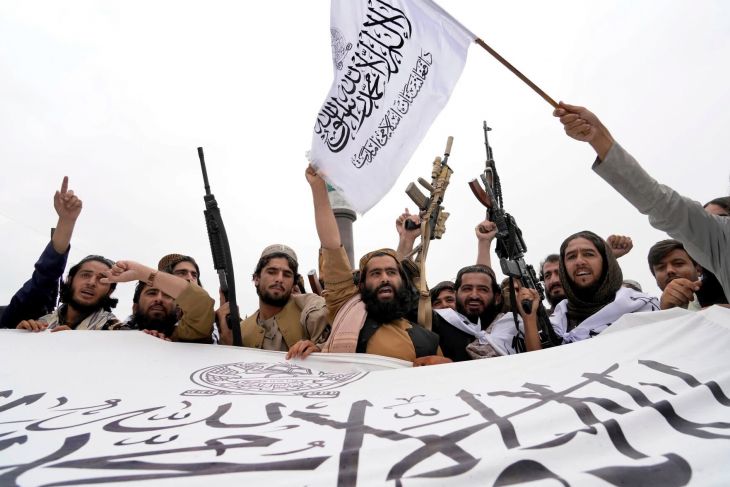When I arrived at the Canadian Embassy in Teheran in 1976, my ambassador and his wife invited me to accompany them on a three-week tour of Afghanistan in their Land Rover. We visited the hidden valleys of the country – areas so remote that the inhabitants hadn’t heard of Afghanistan!
The countryside was very conservative, enjoying a Salafi-like brand of Islam. The urban centers were far more liberal, and this was underscored by the way that the women and men dressed and interacted.
This lasted until the Soviet invasion of 1979, when the country became a battleground. It has remained so until this day.
From the end of World War II until the Soviet invasion, Afghanistan was forgotten by the rest of the world. Barring tourists who wanted to visit Kabul or overland from Europe to India, the Cold War ignored the country and left it in peace. This lasted until the Soviet Union sought to realize a long held Russian dream to expand towards the warm waters of the Indian Ocean, and Afghanistan was the first step.
The Soviet invasion divided the country, with some Afghans supporting the Soviets, while others were joined by Islamic fighters from across the Muslim world. Among these were Osama Bin Ladin and his followers, proponents of Salafi Islam.
The fight was not between Afghan fighters and Soviet ones, but rather between Islamic fighters (today represented by the Taliban) and the non-believers. The Afghan identity seems to have been lost in this equation, most recently aided and abetted by a West seeking to make Afghanistan into something that it never was and will likely never be – a Western style democracy.
At the root of this dilemma was the Bonn Conference of 2001 that sought to define Afghanistan after the invasion by the United States and allies under the aegis of the United Nations. The conference named Hamid Karzai president, and he proceeded to appoint his allies – all vociferous foes of the previous Taliban government along with warlords who had fought the Soviets and the Taliban in the previous decade.
In my view, outlawing the Taliban and concentrating political power in Afghan warlords and their various ethnic groups erased any possibility of creating a national consensus and developing a national identity necessary to create a united government and people.
Instead, often in the name of political correctness, the West sought to create ethnic satrapies under the warlords. It provided warlords with billions in funding that not only made many of them rich but also almost ensured that not only would the funds not reach the lower strata of society. This, together with the introduction of Western concepts such as women’s rights created resentments and jealousies among the extremely religious elements that played into the hands of the Taliban.
At a recent conference in Mexico City, I had the pleasure of meeting Roya Rahmani, Afghanistan’s first female Ambassador to Washington, who described the mess created by well-intentioned donor states that resulted in the fragmentation of the country rather than in the consolidation of a national identity.
In her view, supporting the warlords was the wrong approach. What should have happened from the very beginning was that the invaders should have incorporated the Taliban in the process of nation-building and created a national consensus that was and remains a sine que non for a strong nation.
In addition, they should have been more sensitive to Afghan culture and used this knowledge to help Afghans slowly change their self-perception and values so that a more moderate form of Islam – essential for Afghan society – could meld with or at least coexist with Western concepts of human rights and, especially, women’s rights – so much a focus of concern today.
This might have led enough followers of the Taliban to buy into a national consensus that could have precluded the hard-liners from taking absolute control of the country.
The war in Afghanistan has gone on since 1979.
In my view, it will continue to go on and on until a common denominator is found between traditionalists and moderates, and until consolidated Afghan values supersede Islam as the glue that binds society and provides its national identity.
But can such a consensus be achieved?
Can religious radicalism be replaced by pragmatic consensus?
I don’t know.
But I do think that the world must come to grips with the realities of the Afghan social and political matrix and develop a sensitivity that it can apply to a future relationship with the Emirate.
Keep reading: Bibi is Back
Edición: Laura Espejo
Nueva Inglaterra-Seattle, un choque de equipos muy equilibrados
Ap
El director regional destaca que no hay afectaciones y existe buen abastecimiento de agua
Astrid Sánchez
Hay bajo potencial de lluvia, pero la madrugada del sábado será muy fría
La Jornada Maya
Ha recibido miles de ''me gusta'' en la red social del presidente
Afp
